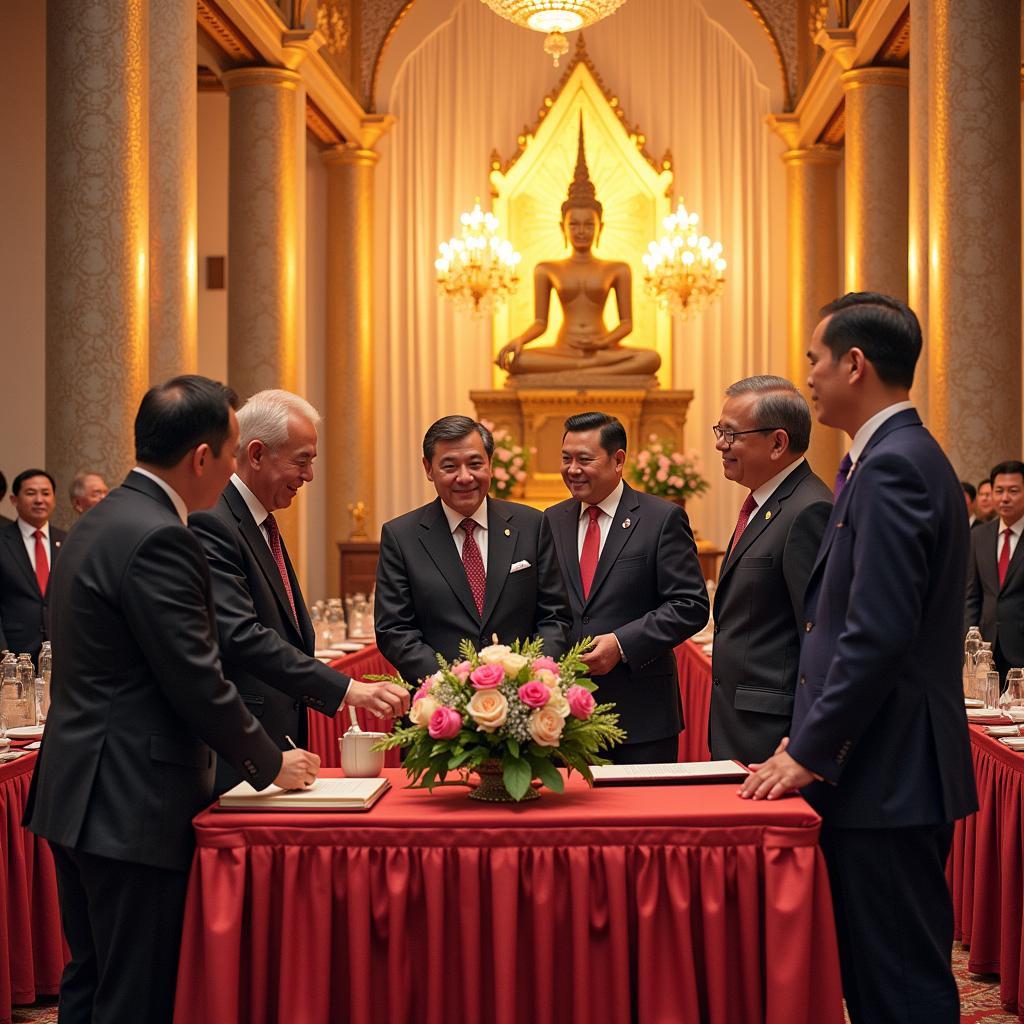The Asean Bangkok Declaration, signed on August 8, 1967, marked the birth of the Association of Southeast Asian Nations (ASEAN). This pivotal document laid the groundwork for a regional organization dedicated to fostering peace, stability, and prosperity in Southeast Asia.
 Signing Ceremony of the ASEAN Bangkok Declaration
Signing Ceremony of the ASEAN Bangkok Declaration
A Region in Transition
The mid-20th century was a tumultuous period for Southeast Asia. The region was grappling with the legacies of colonialism, the rise of Cold War tensions, and internal conflicts. Recognizing the need for unity and collaboration in the face of these challenges, five visionary leaders – Indonesia’s Adam Malik, Malaysia’s Tun Abdul Razak, the Philippines’ Narciso Ramos, Singapore’s S. Rajaratnam, and Thailand’s Thanat Khoman – came together to establish ASEAN.
The Essence of the Bangkok Declaration
The ASEAN Bangkok Declaration, also known as the ASEAN Declaration, outlines the fundamental principles and objectives that continue to guide the organization today. These principles, rooted in shared values and aspirations, emphasize:
- Respect for sovereignty and territorial integrity: Each member state is recognized as an equal partner, with its independence and sovereignty upheld.
- Non-interference in internal affairs: ASEAN respects the right of each member state to determine its own domestic policies without external pressure.
- Peaceful settlement of disputes: Member states are committed to resolving conflicts through dialogue and diplomacy, rejecting the use of force.
- Cooperation in various fields: The declaration recognized the importance of working together in areas such as economic development, social progress, and cultural exchange.
The Significance of the Bangkok Declaration
The ASEAN Bangkok Declaration holds immense historical and contemporary significance. It marked a turning point in Southeast Asian history, paving the way for:
- Regional stability: By promoting dialogue and cooperation, ASEAN has helped to prevent conflicts and maintain peace in the region.
- Economic integration: ASEAN has facilitated economic growth and development through initiatives such as the ASEAN Free Trade Area (AFTA) and the ASEAN Economic Community (AEC).
- Enhanced cooperation: The organization provides a platform for member states to collaborate on a wide range of issues, from combating transnational crime to addressing climate change.
The Bangkok Declaration in the 21st Century
More than five decades since its signing, the ASEAN Bangkok Declaration remains relevant. The principles enshrined in the document continue to guide ASEAN’s approach to regional and global challenges.
The enduring legacy of the Bangkok Declaration is a testament to the vision of its architects and the commitment of ASEAN member states to work together for a peaceful and prosperous Southeast Asia. The organization’s success in fostering regional cooperation serves as an inspiration for other regions striving for integration and development.
Need assistance? Contact us:
Phone Number: 0369020373
Email: aseanmediadirectory@gmail.com
Address: Thon Ngoc Lien, Hiep Hoa, Bac Giang, Vietnam.
Our customer service team is available 24/7.